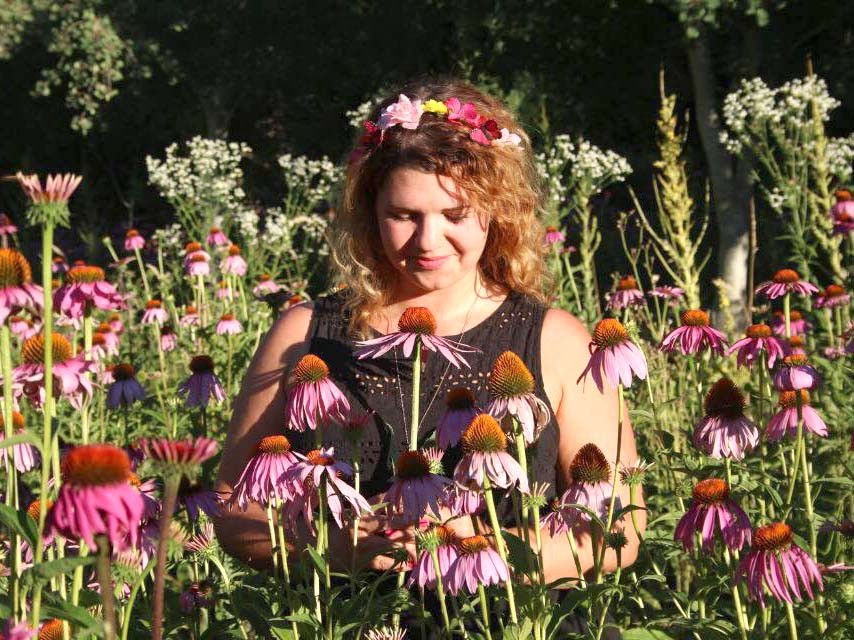By Siobhán Carroll – BA; Dip Nat; Dip Herb; MANP; MGNC
As you mop your brow following no doubt another interrupted night’s sleep, I’m sure it will come as little consolation to learn that many cultures believe the menopause should be celebrated as a new era in a woman’s life.
Menopause generally occurs between the ages of 45 and 55 but in some women it can begin much earlier and in others, as late as 65. For most women there are three phases: peri-menopause, where you still have periods but they may be heavier or lighter than usual and you may start to experience some menopausal symptoms, such as hot flushes; menopause, when ovarian function declines, oestrogen levels drop off and periods stop, and post-menopause, which officially begins 12 months after your last period – but it’s safer to wait 2 years before assuming it’s all finished.
Throughout all three phases hormones tend to run amok, resulting in hot flushes, night sweats, low mood, thinning hair, headaches, tiredness and loss of libido. And symptoms are unfortunately very common: in the West approximately 75% of women are affected.
So, not exactly cause to crack open the Bollinger.
Thankfully, however, there are a number of remedies that can help.
Right at the top of this list is sage. One of our oldest medicinal plants, it appears to have a rebalancing effect on the hypothalamus, an area of the brain responsible for sweat regulation, amongst other things.
When you go through the menopause the ovaries produce less of the hormone oestrogen and this drop in oestrogen causes the hypothalamus to work extra hard on maintaining hormone levels, upsetting its sweat regulating function. This causes sudden surges in temperature and the uncomfortable ‘hot flush’ you’re experiencing.
Sage helps to correct sweat regulation and diminish hot flushes. Fresh sage tincture diluted in a little water three times daily can really help. Try Menosan Sage Drops or for extra oomph, Menoforce Sage tablets.
Isoflavones can also help. Oestrogen-like plant hormones or ‘phytoestrogens’, isoflavones help to reduce hot flushes by providing an additional hormone boost when oestrogen levels are low.
Popular food sources include foods made from fermented soya, such as natto, tempeh and miso – indeed, in Japan, where soya is a dietary staple, less than 25% of menopausal women are reported to suffer with hot flushes.
In fact, steering clear of what might be considered a typical Western diet of white flour (ie bread, pasta and rice), full-fat dairy, fatty meats and caffeine is often recommended.
Increase your intake of organic fruit and veg as these will not contain potentially harmful pesticides.
Essential fatty acids (EFAs) can also help with many menopause symptoms, including thinning hair, nails and skin. The main contenders are omega 3, found in flax seed oil, omega 6, found in hemp and omega 9, which is naturally present in pumpkin seeds.
If irritability is a problem try vitamin B12, available naturally in oily fish, eggs and meat or as part of a B-complex supplement. B-complex will almost certainly provide vitamin B5 or pantothenic acid, which can help to support adrenal function, and folic acid (B9), which is very important during the menopause as it helps to protect bones.
Osteoporosis or brittle bones is caused by low oestrogen levels and is most common in women who have been through the menopause.
Vitamins C and K are crucial for healthy bones, as is calcium. Most of us know that dairy products such as yoghurt, skimmed milk and cheese are a good source of calcium, but some people have difficulties digesting these foods. Spinach, broccoli, beans, peas, sardines and pilchards are also excellent calcium providers.
In addition to four servings of calcium-rich foods a day, increase your intake of vitamin D (found in oily fish, liver and eggs), which is essential for the absorption of dietary calcium.
Finally, if flushes and night sweats are starting to affect your sleep, a little Valerian tincture taken half an hour before bedtime should help you to drift off.

About Siobhán
Siobhán Carroll is a fully qualified clinical Herbalist and Naturopath based in Ireland. She runs her own clinic in Co. Clare and online via her website nerdynaturopath.com. She has 10 years of experience in the field of natural health, she also teaches yoga and meditation and is a lecturer at the College of Naturopathic Medicine.
Siobhán is also a cold-water sea swimmer, a loving mum and a massive Harry Potter fan. She has a deep connection with plants and is passionate about empowering people to look after their own health using the healing powers of nature.
Siobhán Carroll BA; Dip Nat; Dip Herb; MANP; MGNC
Follow Siobhán on Facebook.